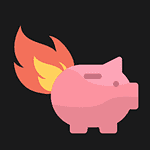Ben Meer published a list of 30 life hacks he knows at 30 he wished he knew at 30. Some of these themes carry over from other authors such as Derek Sivers, Tim Ferriss, Cal Newport, and others.
My favorite hacks from this list are: the default “no” response, not finishing movies or books if they suck, mid-day naps, and forcing minimalism when you buy you things. Check out his Twitter below.
Life hacks I know at 30 I wish I knew at 20:
1. The best productivity app on your phone is called airplane mode (use it).
2. Make ‘No’ your default. Whether it’s new work projects or social gatherings, saying ‘Yes’ to non-priorities ruins your priorities. In the words of Mark Manson, if it’s not a ‘fuck yes,’ it’s a no.
3. Normalize “I don’t know anything about that” as a successful answer.
4. You don’t have to finish the book or movie if it sucks.
5. Stop regretting past decisions. You made the best choice at the time with the knowledge you had. Be at peace with it.
6. Success comes down to a simple choice:
1. Decide exactly what you want.
2. Determine the price you have to pay.
3. Choose if you’re willing to pay it.
7. Write down your 3:3:3 plan: 3 hours on your most important project, 3 shorter tasks, 3 maintenance activities. Defining a “productive day” is crucial. Or else you’ll never be at peace (even with excellent output).
8. Find your peak state of energy (morning for most). Time block 2-4 hours during that period for your most important task (see hack #7). Show up at the same time—day by day, week by week. You’ll never worry about money again.
9. Avoid checking your phone first thing in the morning. Happiness is abundant by design, scarce by luck.
10. Score your day (like a movie) with music. Music is a powerful mood enhancer. Almost everything is more enjoyable with music. My go-to: Hans Zimmer.
11. Take an internal shower every morning. Drink a full glass of water right away. 60% of your body is water. Replenish it
12. Follow Japan’s 80% Rule: “Eat until you’re only 80% full.” Nobody has time for a food coma
13. Normalize midday naps. You get two days of energy in one
14. Our ancestors used to hunt mammoths. Now we sit at desks for 8 hours every day. Then we watch TV for another 3 hours (on average). Humans aren’t built for this. Get a standing desk, take walking meetings, move your body daily
15. Psychology says, the way you talk about others is the way you talk to yourself (so be kind).
16. Spotlight Effect (Bias): We think people are paying far more attention to us than they are. Harsh truth: Your freedom begins the day you realize nobody is thinking about you
17. Stop looping, ask powerful questions. If you’re like me, you re-run things over in your mind. Often these loops do not serve us. So when you catch yourself in a loop, ask: Is this useful? Will I care about this in 1 year?
18. Hone your body language (7-38-55 Rule). People will like/dislike your communication based on: 7% words, 38% tonality and face, 55% body language. Stand up straight, pull your shoulders back, make eye contact, smile, give a firm handshake. You will be dangerous
19. A person’s favorite sound is their name. I have a theory about their 2nd favorite sound: The names of their loved ones and pets. Whenever you hear one mentioned, write it down. Later, ask *by name* about them. You will stand out
20. Spend more time with people who give you energy. Spend less time with people who steal your energy.
21. Master the “gift of goodbye.” You don’t owe loyalty to a friend, partner, or employer who belittles you. Successful & happy people simply say goodbye.
22. Once a week, do something alone (dinner, movies, etc.) Society has programmed us to think it’s weird to do things alone. But if you’re not comfortable being alone, you’ll never be comfortable leaving toxic relationships. A person who’s happy alone is a powerful person
23. Write down your goals. Remind yourself who you want to be. The 14% of people who have goals are 10x more successful than those without goals. The 3% with written goals are 3x more successful than the 14%
24. Avoid telling people your goals. It releases cheap dopamine and tricks your brain into thinking you’ve already achieved them (lowering motivation). Move in silence
25. Simplify your finances: Cancel unused subscriptions. Automate your bills, savings, and investments. Budget with the 50/30/20 Rule (50% Needs, 30% Wants, 20% Savings).
26. Buy things that make you healthier, wealthier, or provide you free time. It’s called practical materialism: Products that make a material difference in the quality of your life
27. Use the 1% Rule to curb impulse buys. If the item is over 1% of your annual gross income, wait 3 days. If you still want the item after 3 days, get it. You’ll often realize you don’t actually want/need that thing
28. If you purchase one item, then donate, toss, or sell another. Minimalism is a dual discipline: Manage both inbound and outbound possessions to enjoy equilibrium
29. Give your mind an overnight task. Upon closing your eyes, give your mind a job. “How might I make an extra $1k each month?” Don’t try to solve it then; just release it to your subconscious (which will work on it overnight). Credit: LinkedIn founder, Reid Hoffman
30. Normalize being weird. “Weirdness is what sets us apart, gets us hired. Be your unapologetically weird self. In fact, being weird may even find you the ultimate happiness” —Chris Sacca







